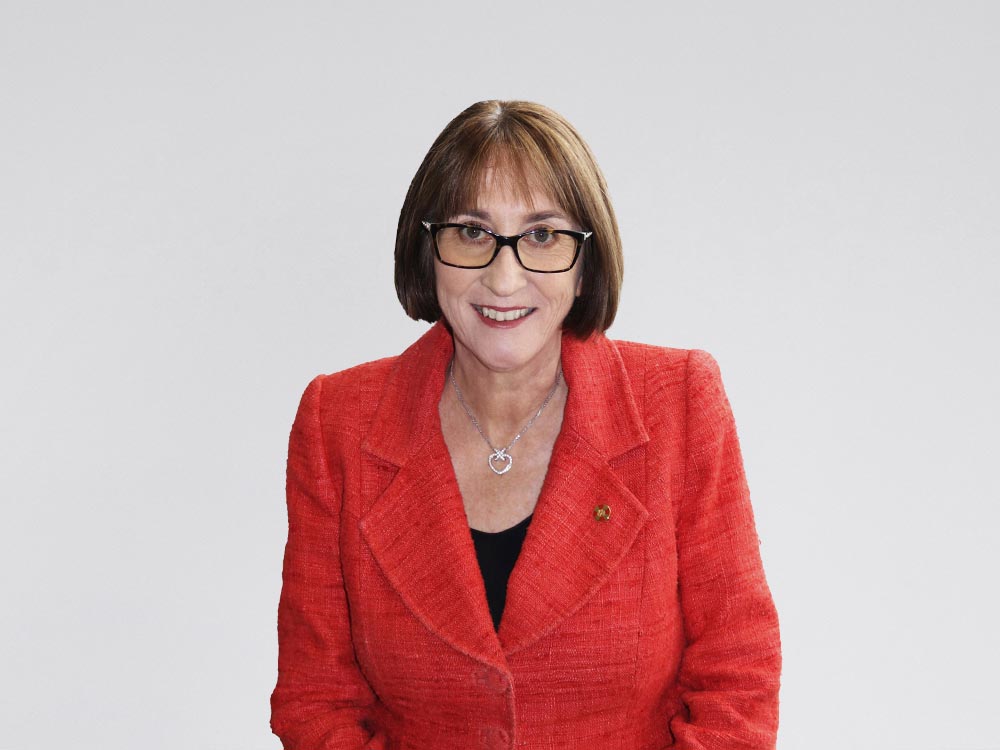On Wednesday, 2 August 2023, MinterEllisonRuddWatts held its 20th annual Corporate Governance Symposium for directors and senior executives at the Cordis in Auckland.
The symposium began with a welcome from MinterEllisonRuddWatts Partner Lloyd Kavanagh who introduced the topic for discussion at this year’s symposium: Effective governance in challenging times.
Then followed a panel discussion featuring five highly regarded governors:
- Mike Pohio (Chair of Ngai Tahu Holdings, Rotoiti 15LP and Mana Ahuriri Holdings, Director of KiwiGroup Capital, of Argosy, of Te Atiawa Iwi Holdings, and former CEO of KiwiRail);
- Pip Greenwood (Chair of Westpac NZ, Director and Chair Elect of A2 Milk, Director of Fisher & Paykel Healthcare, Trustee of the Auckland Writers Festival, and former Director of Spark and Vulcan Steel);
- Rob McDonald (Chair of Contact Energy, Director of Fletcher Building, AIA Assurance, and CAANZ, council member of Auckland University and Chair of the Auckland University Business School advisory board, and former CFO of Air New Zealand);
- John Penno (Founder and current director of Synlait Group, Chair of The Pure Food Company, Director of NZ Merino, Co-Founder and Director of Leaft Foods, and Chair of the Fresh Water Leaders Group); and
- Dame Therese Walsh (Chair of Air New Zealand, of ASB Bank, and of Chapter Zero NZ, Director of Antarctica NZ and of On Being Bold, former Chair of TVNZ, former director of NZX and Contact Energy, Chief Operating Officer of Rugby NZ 2011, and former CFO of the NZ Rugby Union).
The panel addressed the question ‘how can boards govern effectively and deliver optimal outcomes for shareholders and stakeholders in times of crisis or amidst challenging circumstances?’ in the context of the current challenges confronting New Zealand business, which include:
- the need for New Zealand enterprise to be productive, competitive internationally, and profitable in delivering sustainable returns for shareholders, which is enduring; and
- other topical issues such as:
- digital change – both artificial intelligence and cyber-threats.
- inflation – levels not seen for 30 years, with increasing interest rates in response.
- climate-change – both threats and opportunities as we adapt and mitigate.
- te ao Māori – ensuring engagement is more than lip service.
- the Covid legacy – the peak is past, but there is an enduring ‘long tail’ of societal consequences.
- social licence – an ever-widening range of stakeholders and concerns that business must take into account.
Several themes emerged from the symposium in response, including:
Seek to provide assurance and confidence to stakeholders
When faced with changing or challenging times, it is critical to determine the role of the Board early. The Board should be asking whether its existing assurance frameworks and processes are fit for purpose, as a ‘business as usual’ approach may not be satisfactory in all circumstances – and to be prepared to develop a different risk assurance framework with a higher threshold if needed.
In these times, look to develop your response or recovery plan closely and share the target outcomes widely among stakeholders. This allows for a broader response and contribution to achieving those target outcomes.
Moving from disaster to opportunity (and keeping an eye on the future)
Winston Churchill famously said, “Never let a good crisis go to waste”. This sounds bold, but an effective Board needs to be bold in challenging times, as those times can provide the best opportunities for a Board and organisation to redefine the who, what, and how to operate.
The Board and management need to be on the lookout for the next big thing, both as an opportunity and a threat. To succeed, ultimately organisations need to deliver what customers want – and whatever area of business you are in, there is likely someone out there looking to innovate and provide the world with a more effective solution (better quality, lower cost, or more convenient) than anything in the market today.
Sometimes future change (and the opportunities that presents) can be difficult to see. A Board’s role is to ensure that the management team is balancing delivering on their immediate plans while positioning the organisation for what's coming. Because the future is uncertain, this often comes down to creating options for a future that is much more likely to be different than today.
Be flexible
There is no ‘one size fits all’ approach to governing on the challenge/crisis spectrum. The circumstances you face will dictate the best approach, which might not be what you were expecting. Sometimes a Board will need to respond to a short and sharp challenge, while at other times it might be faced with a deep and wide crisis.
The traditional governance ‘playbook’ can be unhelpful and unpragmatic (and not in the best interests of your organisation) if you are in a true deep and wide crisis. A Board needs to be flexible and prepared to ignore the traditional governance paradigms if that is what is necessary to achieve a better outcome. In some instances, the Board’s role may actually be to get out of the way and let management get on with what needs to be done.
Financial stability should be a core focus
In the current challenging economic environment, financial stability should be a core focus and goal for all businesses, and Boards need to ensure that their cost bases are able to respond to difficult financial conditions. With the restoration of interest rates to longer term levels, Boards need to be confident that their organisation’s debt levels are sustainable through a period of financial adversity.
It is equally important that both the Board and management maintain a growth and innovation bias through this environment. That is not easy if the economy is contracting, but it is important particularly if that growth involves exporting.
Get to know your regulator(s)
If your organisation operates in a regulated industry, there can be value in getting to know your regulators. Engage with them, invite them to your board meetings (if they are happy to come along), be transparent and understand what issues they are thinking about and how they are thinking about addressing them. Those insights can have the added benefit of leading the management team to think about your regulator in a new light and approach engagement with them in a different way.
The importance of risk management and succession planning
Governance is not a short-term activity. Maintaining a regular focus on risk management and succession planning will hold a Board (and wider organisation) in good stead in tougher times.
Regardless of the size of the organisation, every Board should invest time in its risk governance / risk management frameworks, and not be afraid to look for external help and advice if you need it. When developing those frameworks, keep in mind that the management team also needs to own them – risk is created and accepted by the business and so everyone should understand an organisation’s key risks and appetite for risk. It is impossible to eliminate risk, so it is important for the Board and management to understand your organisation’s risks and put processes in place to manage them.
No matter how good a Board is, its success depends on the quality of the CEO and management team, particularly in a crisis. Succession planning is vitally important. The Chair also has a fundamental role to play, both as the coach of the CEO and in demonstrating calmness, empathy and effective communication and engagement in a crisis to strengthen the bridge between the Board and management.
Be visible, stay curious, and panic like a pilot
An effective Board demonstrates visible leadership. People want to understand what the Board stands for and what your strategic intent is. If you are governing a large organisation, it is important to get out of the boardroom and talk to the people who work in the organisation, to test the culture and show them what you are about.
Governors need to stay curious and challenge the status quo. The moment we become certain we understand things is the moment we stop inquiring. Diversity is important in this regard. While it is important to have people with experience (who have “been there and done that”), diversity of perspective and background drives curiosity and helps to challenge the status quo and better identify the risks and opportunities that are coming. As soon as a Board finds itself agreeing all the time, it is time to think again.
When faced with challenging times, have a clear process to step through that allows you to “panic slowly” and then take clear and decisive action – like a pilot. Find a process that fits your personal style to ensure that you retain a sense of optimism and display resilience.
Key contacts
Speak with one of our experts.





